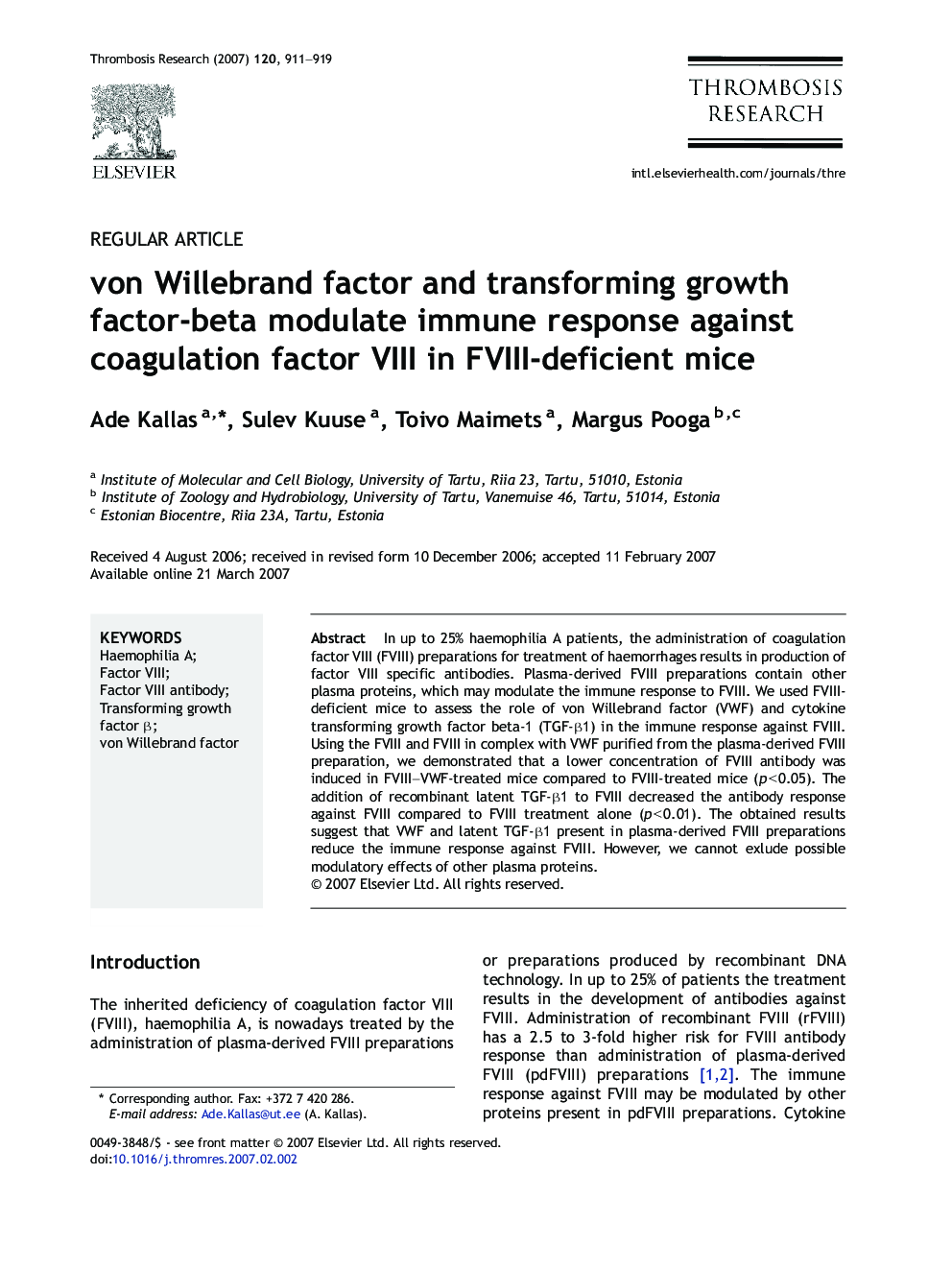| Article ID | Journal | Published Year | Pages | File Type |
|---|---|---|---|---|
| 3030061 | Thrombosis Research | 2007 | 9 Pages |
In up to 25% haemophilia A patients, the administration of coagulation factor VIII (FVIII) preparations for treatment of haemorrhages results in production of factor VIII specific antibodies. Plasma-derived FVIII preparations contain other plasma proteins, which may modulate the immune response to FVIII. We used FVIII-deficient mice to assess the role of von Willebrand factor (VWF) and cytokine transforming growth factor beta-1 (TGF-β1) in the immune response against FVIII. Using the FVIII and FVIII in complex with VWF purified from the plasma-derived FVIII preparation, we demonstrated that a lower concentration of FVIII antibody was induced in FVIII–VWF-treated mice compared to FVIII-treated mice (p < 0.05). The addition of recombinant latent TGF-β1 to FVIII decreased the antibody response against FVIII compared to FVIII treatment alone (p < 0.01). The obtained results suggest that VWF and latent TGF-β1 present in plasma-derived FVIII preparations reduce the immune response against FVIII. However, we cannot exlude possible modulatory effects of other plasma proteins.
